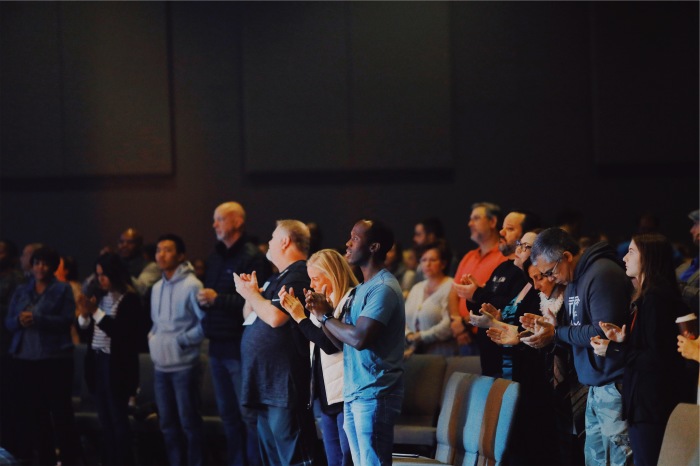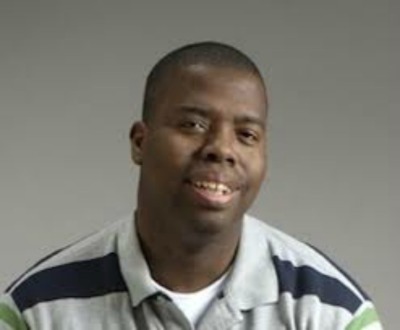Only 16 percent of Christians say Church should repent for America's racist past

A new Barna study shows a racial divide when it comes to American Christians' opinions of how the Church should respond to the historical injustices faced by blacks in America, with only a small fraction saying the Church should repent.
The evangelical polling organization released its new publication titled Where Do We Go from Here? — asking practicing Christians and pastors what, if anything at all, the church should do to bridge the racial divide in the U.S.
A total of 1,502 practicing American Christians from various races were asked the question of what the Church should do in response to the 400 years of injustices faced by African Americans. Respondents were allowed to select multiple answers from a list that included "nothing," "repair the damage, "repent," "pursue restitution," "lament," and "don't know."
Only 16 percent of American practicing Christians said that the Church needs to repent for America's history of slavery and segregation. A minority, 24 percent, of African-American practicing Christians indicated a need for the Church to repent. By comparison, just 13 percent of white Christians also selected "repent" as an answer.
Thirty-three percent of white practicing Christians indicated that they think there is "nothing the church should do" in response to the country's history of slavery, while 15 percent of African-American practicing Christians said the same.
Thirty-three percent of black practicing Christians said the church needs to "repair the damage," while 24 percent of white practicing Christians and 28 percent of all practicing Christian respondents said the same.
Twelve percent of practicing Christians said that the Church should "pursue restitution." Nineteen percent of African-American Christians and 10 percent of white Christians agreed.
Only 8 percent of all practicing Christians indicated that they think the Church needs to lament (express sorrow and grief over something) for the country's history of slavery.
It should be noted that 26 percent of all respondents indicated they "don't know" when asked what the Church should do, including 24 percent of practicing black Christians and 27 percent of practicing white Christians.
"This could represent confusion over the specific options provided, which range from the symbolic to the material, or it could simply be a way of saying respondents are unsure what should — or even what can — be done by churches to help with racial reconciliation," a Barna summary reads.
The Barna research was conducted in partnership with The Reimagine Group.
Jim Wallis, a prominent left-leaning Christian leader and founder of the progressive evangelical social justice organization Sojourners, responded to the survey's findings in a statement provided to The Christian Post.
"Until the Church, notably the white Church, acknowledges its history and complicity with racism, we cannot move towards healing," Wallis stressed. "More often, white Christians refuse to recognize that racism is more than a problem from the past. Until the operative word in 'white Christian' is Christian, we won’t move towards a place of healing. Acting in repentance for the sin of racism, however painful it may be, will bring congregations together."

Maina Mwaura, a freelance writer and interim youth pastor at Mountain Park First Baptist in Stone Mountain, Georgia, told The Christian Post in an interview that the Barna research indicates a "huge disconnect" between white and black Christians.
"A lot of black evangelicals don't see themselves as evangelicals and I think they are OK with that," Mwaura said, referencing the political association of white evangelicals with the Trump administration.
Mwaura agreed that lack of familiarity between white and black Christians and lack of multiracial worship in America is playing a role when it comes to the racial divide in churches. He believes that the Church's role is to help foster the ability for white and black Christians to "listen" and "pray together."
"We are doing so much talking that we're not even listening to one another," he explained. "There is no listening happening. There is definitely no praying together. When you have those two key ingredients in place then what you get is the vision.
"They need some more time with one another. I'd say most of these people — especially white evangelicals — don't have friends of color. When you don't have friends of color — white or black — you begin to assume and assumptions always lead to confusion, always."
Mwaura, a graduate of New Orleans Baptist Theological Seminary, grew up in a predominantly white evangelical church in Orlando, Florida, pastored by former Southern Baptist Convention president Jim Henry.
Henry was president of the SBC when the denomination voted to apologize for its support of slavery and segregation.
"It was one of those things that was pretty far-thinking in [the mid-1990s]. I've always believed that if we are going to move forward, we have to apologize," Mwaura said. "The real truth of the matter is that when we do that, it breaks down walls."
"I really do think that a lot of evangelicals are [asking] that question: 'Are you willing to put aside your thoughts, your beliefs, your opinion, for the Gospel?' I think the resounding answer right now is no."
Wallis told CP that racism is a "matter of theology." The white church's commitment to repentance and penitence "will be tested by a willingness to confront and change racially unjust systems in policing, law enforcement, and voting rights," he noted.
He stressed that a "successful repentance framework" will begin with a "readiness to examine and lament our nation’s ugly history." The "willingness to uproot racially unjust systems must be anchored by a commitment to create genuine educational and economic opportunity for all of God’s children," he added.
"Bringing plans of lamentation and repentance into the church does not mean bringing politics into the church," Wallis argued. "[L]amentation and repentance restores the church with theology and the biblical affirmation that every human being exists as an image-bearer of God.
"If we are serious about reclaiming Jesus, we must reform the way our churches address America’s original sin."
"Pastors and clergy must name racism from the pulpit. Can you imagine the church-changing conversation we would have if every American congregation decided to publicly call racism and white supremacy sin from their pulpits? Repentance and lament would surely begin there, and should continue with a commitment from white Christians to advocate for the transformation of societal structures that have too often been a vehicle for systemic racism, including the white church."
One thing that has happened in today's culture, Mwaura added, is that the requests for reparations have come into play.
Recently, the Southern Baptist Theological Seminary in Louisville, Kentucky, was asked through a petition to pay restitution to a historically black college over its historical ties to slavery and racism. SBTS refused the request, saying they do not believe financial reparations are the appropriate response. Earlier, the school offered a full lament and repentance for its past moral failings on race issues.
"We are in a highly political culture right now, where [the idea of reparations] is a left-thinking deal," Mwuara explained.
Pastors have to "lead the way" when it comes to getting their congregations more familiar with Christians of other races, he stressed.
"It's a simple phone call of, 'Hey, can we do lunch or can we do golfing,'" he said. "I believe every pastor should have someone of a different race who is on the same level to speak into their lives. It begins with pastors."
Follow Samuel Smith on Twitter: @IamSamSmith
or Facebook: SamuelSmithCP





























